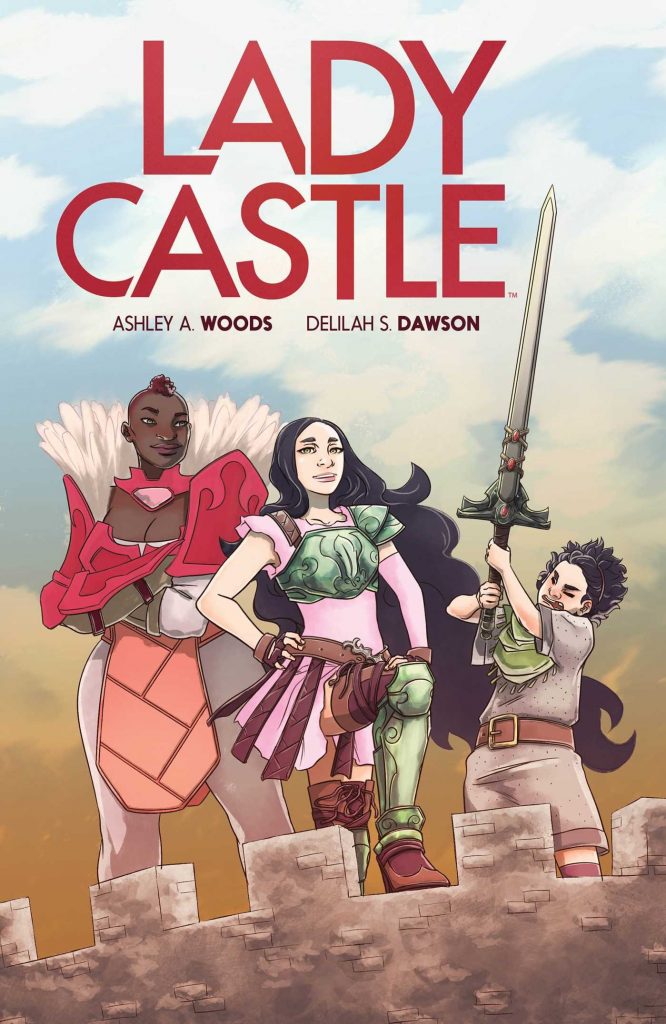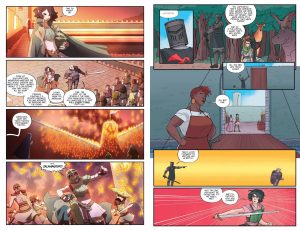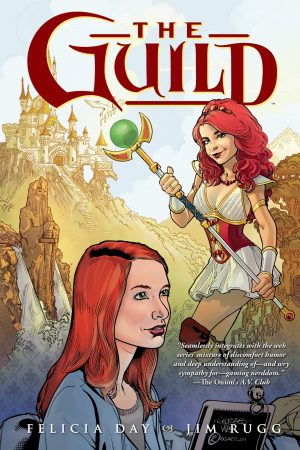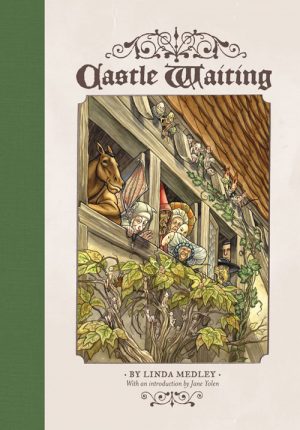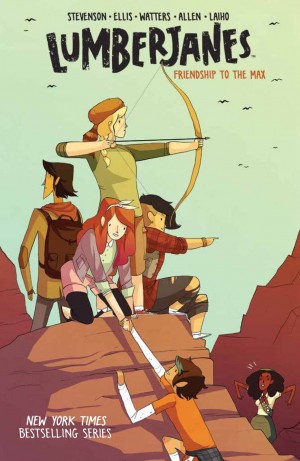Review by Frank Plowright
Ladycastle begins by exaggerating the unsavoury attitudes of fairy tales when it comes to women. Because she’s refused to marry a prince when she came of age at 12, Princess Aeve has been imprisoned in a tower for six years by her father, the King. She spends her days singing parodies of life in the town of Mencastle and helping the women who write to her about their problems with the ridiculous arbitrary rules imposed on them. That all changes when the menfolk away on a quest anger the wrong wizard. Only one survives the massacre, returning home expecting that he’ll be King now, but the women have other ideas. It’s the blacksmith’s wife Merinor who pulls the sword of succession from the fire. It’s going to be needed, as until it’s lifted there’s also a curse attracting monsters to the town, now renamed Ladycastle.
Delilah S. Dawson writes on her scripts on two levels. The surface is a succession of neat fantasy adventures as the women of Ladycastle have to fend off one set of monsters after another. This is carried off with humour and innovation when it comes to dealing with the threats, but there is a convenience in the women twice finding someone previously hidden away who’s able to inform them how to cope with a particular monstrous visit. It’s Dawson’s way of introducing new cast members who have a role in following stories, and with a transformation in the final chapter she really surprises. Ashley A. Woods designs most characters and draws the first chapter (sample spread left) leaving the remainder to Becca Farrow. Both have a neat way of cartooning, with clear panels and good visual definition of the cast.
The second level of scripting is the constant reinforcement that almost everything that’s wrong with Ladycastle and surrounding environment is down to men. If women got together and sorted everything among themselves, there’d be no need for violence because women are more tolerant and can get along together. It’s an idealistic point of view from someone who’s never seen a cider spat at the Cathouse on Friday night, where no amount of talking is going to make any difference, but it would be nice if it were the case, and over the course of Ladycastle Dawson is showing the possible alternative. The relentless hectoring that comes along with it, though is unwelcome. There’s no opportunity missed to lecture, and it prevents total enjoyment of what ought to be a fun graphic novel.
